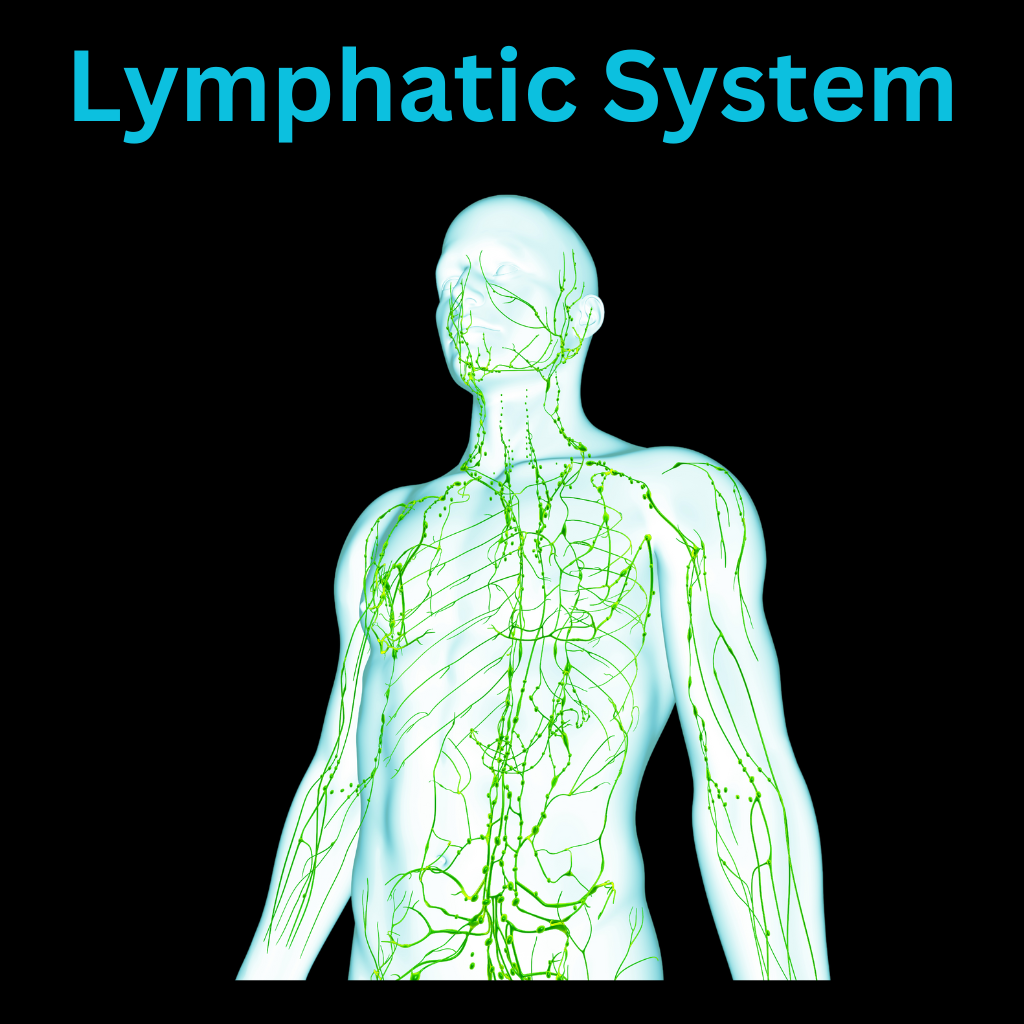
The Lymphatic System: Your Body’s Hidden Superhero
You may not hear much about the lymphatic system, but it’s working tirelessly behind the scenes to keep you healthy and feeling your best. Think of it as your body’s internal clean-up crew — fighting infections, balancing fluids, and even helping you digest food. This system is essential for feeling good, so let’s dive into what it does, why it’s so important, and how you can give it some love.
What Exactly is the Lymphatic System?
The lymphatic system is a network of vessels, organs, and tissues that moves lymph (a clear, watery fluid) through your body. It’s like the silent protector of your immune system, quietly helping to clean up toxins, fight infections, and regulate the fluid balance in your body. Here’s a breakdown of what’s involved:
– Lymph: This fluid carries white blood cells (like lymphocytes) that help your body fight off illness. It’s essential for immune defense and getting rid of harmful substances.
– Lymphatic Vessels: These are like highways that carry lymph all around your body, eventually dumping it back into the bloodstream near your neck.
– Lymph Nodes: Tiny, bean-shaped filters found in areas like your neck, armpits, and groin. They act like checkpoints, filtering the lymph and trapping harmful particles like bacteria or viruses.
– Thymus: A small organ behind your breastbone where certain T-cells mature. These immune cells are crucial for fighting infections.
– Spleen: Located on the left side of your abdomen, the spleen helps filter blood, remove old red blood cells, and store blood. It’s also a major player in your immune defense.
– Tonsils: These little guys in your throat help trap and destroy germs that enter through your mouth or nose.
Why Should You Care About Your Lymphatic System?
So, why does this all matter? Because your lymphatic system is key to feeling great and staying healthy. Here’s why:
1. Immune Defense: The lymphatic system is a frontline warrior when it comes to fighting infections. It helps detect bacteria, viruses, and even cancer cells, then activates your immune system to fight them off.
2. Fluid Balance: Blood vessels leak some fluid into your tissues, and your lymphatic system is responsible for collecting that extra fluid and returning it to the bloodstream. If it’s not working properly, you might experience swelling (known as edema).
3. Fat Absorption: After you eat, your lymphatic system helps absorb fats and important vitamins (like A, D, E, and K) from your food. Specialized lymph vessels in your intestines, called lacteals, do the job.
How Does Lymph Move Around?
Unlike the blood, which is pumped by your heart, lymph doesn’t have a pump of its own. Instead, its movement relies on a few key factors:
– Exercise: Moving your muscles helps push lymph through the vessels, keeping everything flowing smoothly.
– Breathing: When you breathe, your diaphragm moves and creates pressure that helps push lymph through the vessels.
– Valves: Lymphatic vessels have one-way valves that ensure lymph moves only in one direction, preventing backflow.
Signs Your Lymphatic System Needs Attention
If your lymphatic system isn’t working at its best, it can show up in ways like:
– Swelling (especially in the legs, arms, or face)
– Frequent infections (because your immune system isn’t getting the support it needs)
– Chronic fatigue or feeling low-energy
– Digestive issues or bloating
– Skin problems like acne or eczema
If you’re experiencing any of these symptoms, it might be time to show your lymphatic system some love.
How to Keep Your Lymphatic System Healthy
Taking care of your lymphatic system is simple and doesn’t require much. Here’s how to help it work at its best:
– Exercise: Physical activity is key! It helps your muscles move lymph around the body and prevents congestion. Regular movement is one of the best things you can do.
– Stay Hydrated: Water is essential for keeping lymph fluid flowing properly. Drink plenty of water to keep everything in balance.
– Healthy Diet: Eating nutrient-rich foods, like fruits, veggies, and lean proteins, supports your immune system and helps prevent lymphatic congestion.
– Lymphatic Massage: Lymphatic drainage massage is a technique that helps stimulate the movement of lymph through the body. It’s especially helpful if you’re feeling swollen or sluggish.
Common Lymphatic Disorders to Know About
While your lymphatic system is awesome, it can be affected by various conditions. Here are some common ones:
– Lymphedema: This is swelling caused by a blockage in the lymphatic vessels or nodes, often seen after surgeries (like cancer treatments where lymph nodes are removed).
– Infections: Conditions like lymphangitis (infection of the lymphatic vessels) or mononucleosis (which often causes swollen lymph nodes) can affect the system.
– Cancer: Lymphatic cancers, such as Hodgkin’s lymphoma or non-Hodgkin’s lymphoma, involve uncontrolled growth of immune cells and can impact the lymph nodes.
– Autoimmune Diseases: Conditions like rheumatoid arthritis or lupus can interfere with the normal functioning of the lymphatic system.
Let's Wrap It Up With a Recap!
Your lymphatic system plays a huge role in keeping your body balanced, energized, and disease-free. Supporting it with simple habits like staying active, drinking enough water, eating a healthy diet, and practicing techniques like lymphatic massage can help it work better, boosting your overall health and vitality.
So next time you want to feel your best, think about the lymphatic system and how you can give it the care it deserves. It’s your hidden guardian, working every day to keep you healthy and strong!
